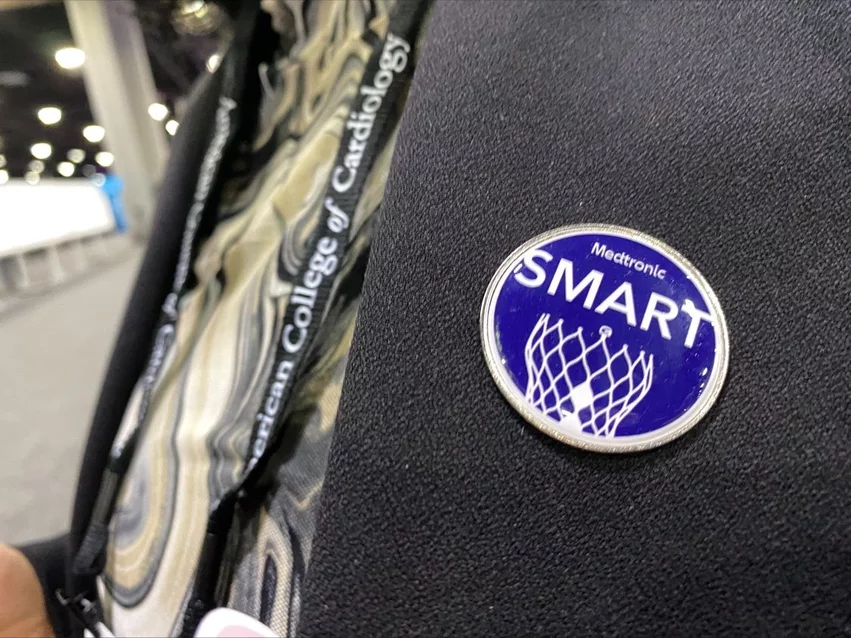ACC.24: Self-expanding Evolut valves offer superior performance for TAVR patients with small annuli
When patients with a small aortic annulus require transcatheter aortic valve replacement (TAVR), should cardiologists and their care teams turn to a self-expanding valve or a balloon-expandable valve? That question was at the center of a late-breaking clinical trial presented Sunday, April 7, at ACC.24, the annual meeting of the American College of Cardiology.
The SMART trial included one-year data from 716 patients randomized to receive either a self-expanding Evolut TAVR valve from Medtronic or a balloon-expandable Sapien 3 valve from Edwards Lifesciences. All patients presented with symptomatic severe aortic stenosis and a small aortic annulus. Eighty-seven percent of patients were women, a statistic that is practically unheard of in TAVR research. Evolut models implanted for the study included the Evolut PRO, Evolut PRO+ and Evolut FX. Sapien 3 models included the Sapien 3 and Sapien 3 Ultra.
Lead author Howard C. Herrmann, MD, a professor at the Perelman School of Medicine at the University of Pennsylvania and section chief for interventional cardiology at the Hospital of the University of Pennsylvania, presented the SMART data to a packed room of ACC.24 attendees.
Overall, he reported that Medtronic’s self-expanding Evolut valves were associated with comparable clinical outcomes and superior valve performance after one year. Bioprosthetic valve dysfunction was seen in 9.4% of patients with a self-expanding TAVR valve and 41.6% of patients with a balloon-expandable valve. The aortic valve mean gradient was 7.7 mm Hg with the self-expanding valve and 15.7 mm Hg with the balloon-expandable valve.
Moderate or severe prosthesis-patient mismatch, meanwhile, was seen in 11.2% of patients with the self-expanding valve and 35.3% of patients with the balloon-expandable valve.
“We think it’s important to study this population, which represents up to 40% of all patients getting TAVR, and it’s important to study women, who make up the majority of the small annulus population,” Herrmann explained. “There was a huge difference—32.2 percentage points—in one-year bioprosthetic valve dysfunction favoring the Evolut platform. The magnitude of the hemodynamics difference was larger than we expected.”
Medtronic comments on late-breaking SMART data
Medtronic was clearly excited about these trial results; dozens of employees were in the front rows for Herrmann’s presentation to hear the news. The company also issued a prepared statement highlighting the findings of Herrmann et al.
“SMART was launched to better understand how the two most commonly used TAVR systems perform in patients with small aortic annuli, and particularly in women who tend to have smaller heart valves,” Nina Goodheart, a senior vice president with Medtronic and president of the company’s structural heart & aortic business, said. “We continue to develop evidence to better understand the benefits of our Evolut TAVR technology in all patients, including patient populations that are underrepresented, under-diagnosed and under-treated. The results from the SMART trial demonstrate these benefits in a large patient population and reinforce our commitment to driving health equity and engineering the best technology to solve unmet patient needs.”
The SMART results were simultaneously published in the New England Journal of Medicine.[1] Click here to read the full study.


